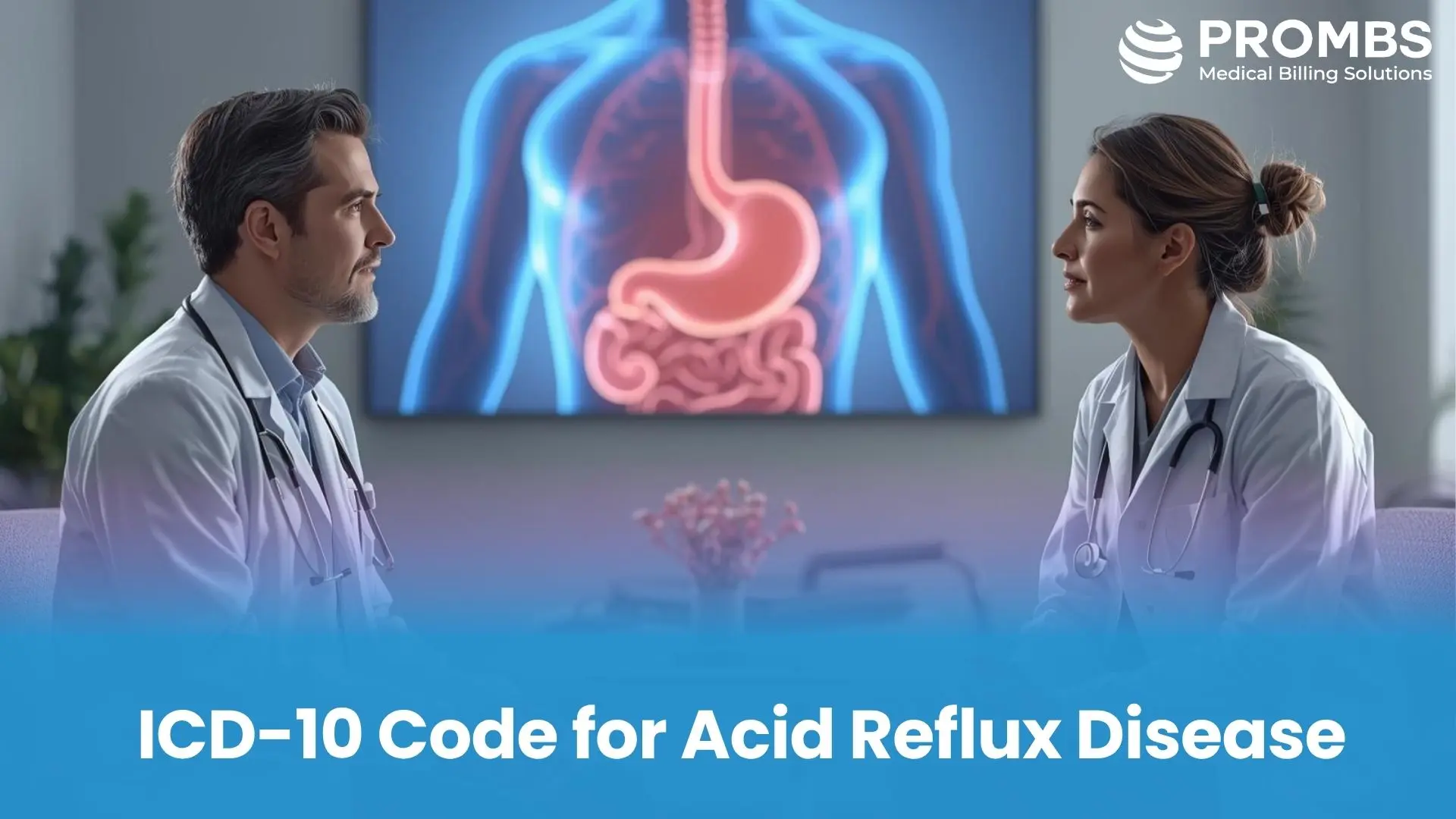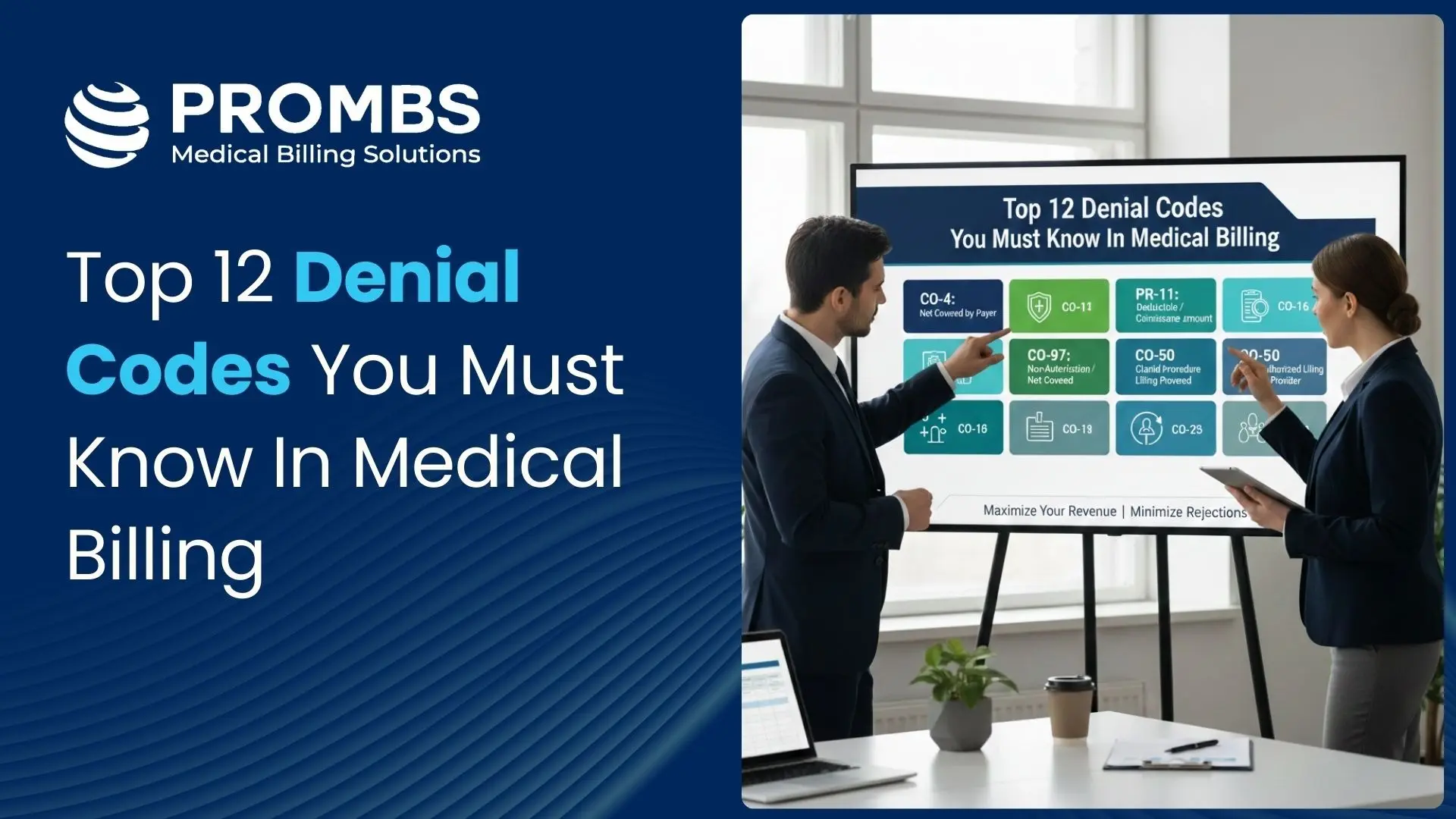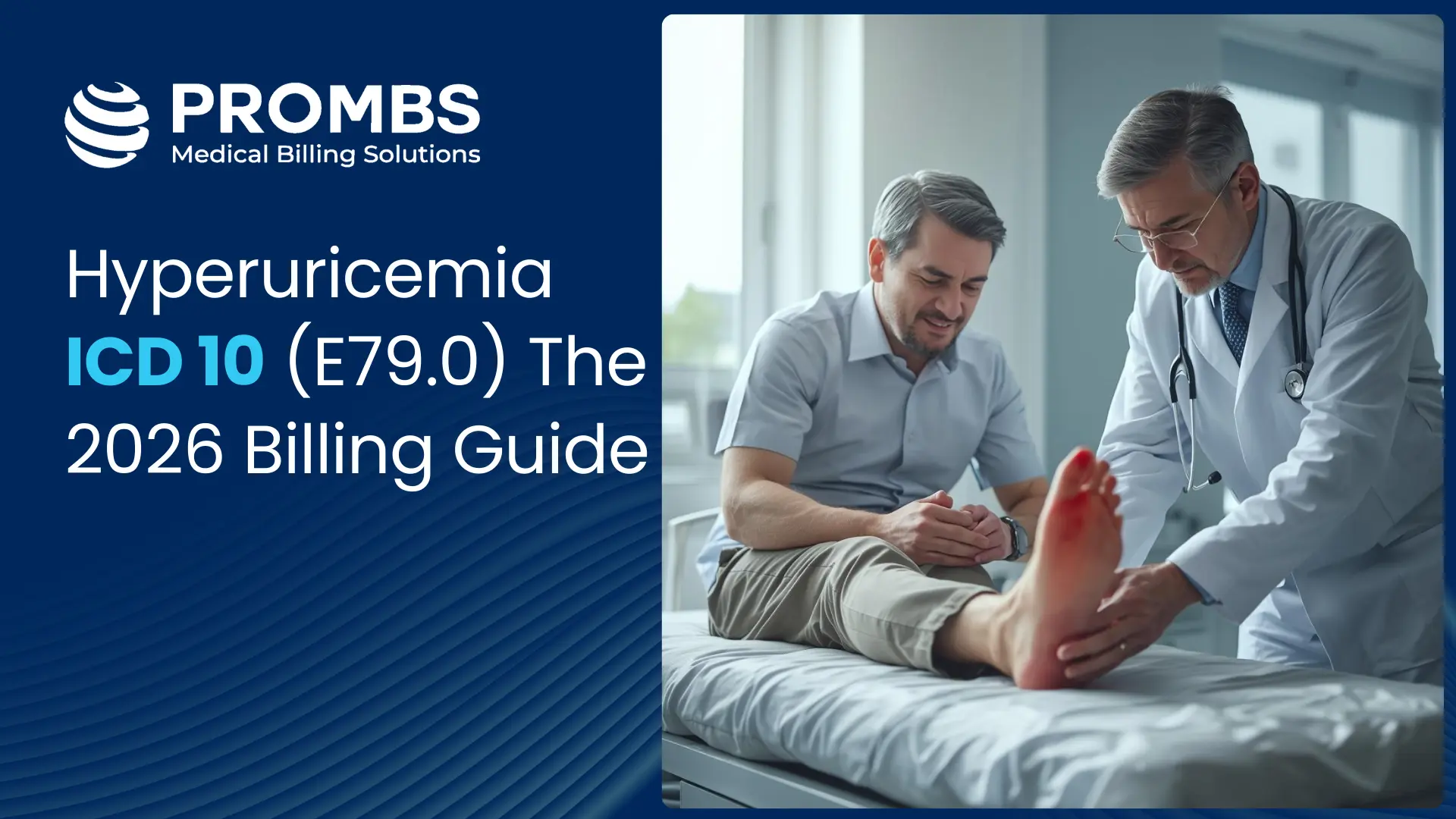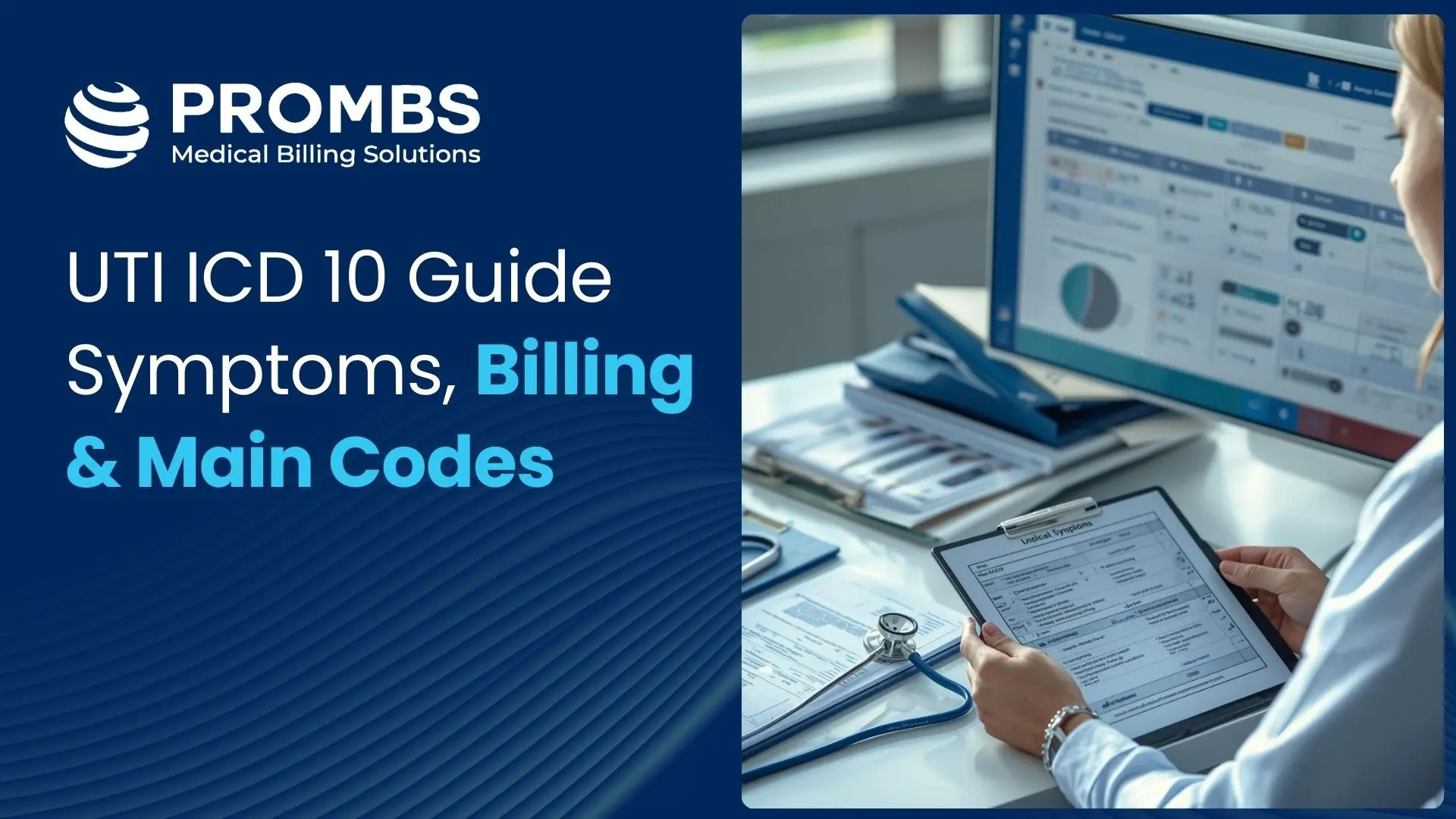Acid reflux disease, more formally known as gastroesophageal reflux disease (GERD), is one of the most frequently reported digestive conditions in the U.S. The American College of Gastroenterology (ACG) estimates that more than 20% of Americans experience GERD symptoms weekly. Clinically, GERD is not only uncomfortable, with heartburn and regurgitation being hallmark symptoms, but it can progress to complications such as esophagitis, strictures, or Barrett’s esophagus if left untreated.
From a medical billing standpoint, GERD-related claims are among the most common gastroenterology submissions. Coders must ensure correct assignment of the icd 10 code for acid reflux disease (K21.9 for GERD without esophagitis, K21.0 for GERD with esophagitis), and correctly link to diagnostic or procedural CPT codes such as 43239 (EGD with biopsy) or 91035 (esophageal impedance test). Failure to document specificity often leads to denials, especially when payers look for clear clinical evidence of GERD severity.
What Is Acid Reflux Disease and What Are Its Symptoms?
Acid reflux occurs when stomach acid flows back into the esophagus, irritating its lining. The National Institute of Diabetes and Digestive and Kidney Diseases (NIDDK) explains that GERD is diagnosed when acid reflux symptoms occur two or more times per week or when complications arise. Acid reflux disease, commonly known as gastroesophageal reflux disease (GERD), is a digestive disorder in which stomach acid flows back into the esophagus, irritating its lining. The National Institute of Diabetes and Digestive and Kidney Diseases (NIDDK) defines GERD as acid reflux that occurs at least twice a week or leads to complications such as esophagitis or Barrett’s esophagus. GERD can significantly impair quality of life, causing chronic discomfort and increasing the risk of long-term complications if not managed properly.
| Symptom | Clinical Relevance | Coding/Billing Relevance |
|---|---|---|
| Heartburn | Described as a burning sensation behind the breastbone, often after meals or when lying down. | Justifies E/M visits (99213) linked with K21.9 (GERD without esophagitis). |
| Regurgitation | Backflow of acidic or sour fluid into the throat or mouth. | Supports ordering esophageal testing (CPT 91010) linked to K21.0/K21.9. |
| Chest Pain | GERD-related chest pain must be distinguished from cardiac causes. | Documentation must clarify GERD vs cardiac etiology; otherwise, claims for GERD-related CPT services may be denied. |
| Chronic Cough / Hoarseness | GERD contributes to extra-esophageal symptoms. | Supports ENT evaluations or laryngoscopy (CPT 31575), linked to GERD diagnosis K21.9. |
| Asymptomatic GERD | Sometimes discovered incidentally during endoscopy. | Still requires ICD-10 reporting (K21.9), even when discovered without symptoms. |
Did You Know?The National Library of Medicine (PubMed) reports that GERD is the third most common gastrointestinal diagnosis in U.S. outpatient clinics, accounting for millions of annual visits. Because of its prevalence, the icd 10 code for acid reflux disease (K21.0, K21.9) is one of the most frequently billed digestive codes, making accuracy in documentation and coding essential for both compliance and reimbuWhile these symptoms provide the clinical foundation for diagnosing GERD, in medical billing they serve a second critical role: justifying medical necessity for CPT services. For example, documentation of chronic heartburn can support an outpatient visit, while persistent regurgitation may justify an esophageal pH study. Without this clear linkage between symptoms and services, insurers often reject claims associated with the icd 10 code for acid reflux disearsement.
What Is the ICD-10 Code for Acid Reflux Disease and What Does It Mean?
The icd 10 code for acid reflux disease is found under the K21 category: Gastro-esophageal reflux disease (GERD). Coders must distinguish whether the patient has esophagitis (K21.0) or not (K21.9). The World Health Organization ICD-10 browser confirms that specificity is required because GERD with esophagitis indicates mucosal injury and usually justifies procedures such as endoscopy and biopsy, while GERD without esophagitis often leads to conservative treatment or diagnostic monitoring. The CMS ICD-10 coding guidelines emphasize that vague documentation like “acid reflux” without specifying esophagitis should be avoided, as payers often deny claims when specificity is missing.
| ICD-10 Code | Meaning | Clinical Example | Billing Insight |
|---|---|---|---|
| K21.0 | GERD with esophagitis. | “Endoscopy revealed erosive esophagitis secondary to reflux,” documented in clinical guidance. | Supports CPT 43239 (EGD with biopsy) as medically necessary. |
| K21.9 | GERD without esophagitis. | “Patient reports chronic heartburn, no esophagitis on endoscopy,” consistent with GERD description. | Links to outpatient CPT 99213 (E/M office visit) and medication therapy claims. |
Correctly identifying the presence or absence of esophagitis is crucial not only for coding accuracy but also for billing compliance. For instance, if a provider documents erosive esophagitis and the coder still applies K21.9, payers may classify the claim as miscoded. This leads to denials or repayment demands in audits, as repeatedly highlighted in OIG improper payment reports.
Did You Know? The Office of Inspector General (OIG) has identified unspecified GERD coding (K21.9 when esophagitis is present) as a top cause of GI claim errors in Medicare reviews. This highlights why selecting between K21.0 and K21.9 is one of the most critical steps when applying the icd 10 code for acid reflux disease, accuracy directly impacts reimbursement and compliance.
Which ICD-10 Chapter Includes Acid Reflux Disease?
The icd 10 code for acid reflux disease is housed in Chapter XI: Diseases of the Digestive System (K00–K95). Within this chapter, GERD belongs to the K20–K31 block: Diseases of esophagus, stomach, and duodenum. According to the CDC ICD-10-CM browser, this block organizes conditions affecting the upper GI tract, ensuring coders can differentiate GERD from peptic ulcer disease, gastritis, or other esophageal disorders.Correctly placing GERD in its ICD-10 chapter is not just academic, it directly affects claim integrity. Payers evaluate whether the diagnosis belongs to the right disease chapter and whether the documented condition aligns with associated CPT services like esophagogastroduodenoscopy (EGD).
| ICD-10 Chapter | Block/Range | GERD Placement | Coding Insight |
|---|---|---|---|
| Chapter XI: Diseases of the Digestive System (K00–K95) | Covers GI tract disorders from mouth to intestines. | GERD is coded under K21.0 (with esophagitis) and K21.9 (without esophagitis). | Ensures coders select specific reflux codes instead of miscoding under gastritis or ulcers. |
| Block K20–K31: Diseases of esophagus, stomach, and duodenum | Focuses on disorders like esophagitis, gastritis, duodenitis. | GERD falls within this block, reflecting its esophageal origin. | Correct block selection validates CPT claims for esophageal procedures. |
Properly understanding where GERD resides in ICD-10 ensures compliance during billing. When providers document GERD under Chapter XI, coders can correctly link it with gastroenterology CPT services like 43239 (EGD with biopsy), which the American Medical Association lists as a standard esophageal diagnostic procedure. If miscoded under a non-digestive chapter, claims are often denied, as emphasized in CMS billing guidance. Furthermore, the AAPC warns that incorrect chapter placement can result in failed medical necessity justification, a frequent trigger for payer audits.
Did You Know? The CMS improper payment fact sheet reveals that digestive system diagnoses, including GERD, represent a significant share of annual recoveries from denied claims. Many of these errors occur because providers or coders fail to align the ICD-10 chapter/block with documented procedures, showing why accuracy in applying the icd 10 code for acid reflux disease is critical for both compliance and revenue.
What Are the Treatments for Acid Reflux Disease?
Treatment for acid reflux disease depends on the severity of symptoms, presence of esophagitis, and patient response to lifestyle or pharmacologic therapy. The American Gastroenterological Association (AGA) notes that mild GERD is usually managed with lifestyle changes and over-the-counter antacids, while chronic or severe cases may require prescription proton pump inhibitors (PPIs), diagnostic endoscopy, or even surgical intervention. From a billing standpoint, coders must connect the icd 10 code for acid reflux disease (K21.0 or K21.9) with the appropriate CPT procedures to ensure payer recognition of medical necessity.
| Treatment | Clinical Use | ICD-10 Example | CPT Example | Documentation Insight |
|---|---|---|---|---|
| Lifestyle Modification | First-line approach (dietary changes, weight reduction, avoiding alcohol), per NIDDK. | K21.9 – GERD without esophagitis | 99213 – Office/outpatient visit, listed in AMA CPT guidelines. | Provider must document counseling provided and specific lifestyle recommendations. |
| Medication Therapy | Proton pump inhibitors (PPIs), H2 blockers, antacids, recommended in AGA GERD guidelines. | K21.0 (with esophagitis) or K21.9 (without esophagitis) | J8499 – Oral prescription drug, not otherwise specified, described by CMS HCPCS. | Must capture drug name, dose, frequency, and patient response. |
| Diagnostic Endoscopy (EGD) | Indicated for GERD with complications like strictures or bleeding, explained by Cleveland Clinic. | K21.0 – GERD with esophagitis | 43239 – EGD with biopsy, validated in AMA CPT codebook. | Endoscopy report must describe mucosal findings and biopsy sites. |
| Surgical (Fundoplication) | For refractory GERD not responsive to PPIs, per Johns Hopkins Medicine. | K21.0 or K21.9 depending on esophagitis status | 43280 – Laparoscopic Nissen fundoplication, documented in NIH surgical outcomes research. | Operative note must justify failure of prior conservative and medication therapy. |
Treatment decisions must always be documented in alignment with both ICD-10 and CPT codes. For example, if a patient undergoes an endoscopy, the provider must note whether esophagitis was present, since this dictates coding K21.0 vs K21.9. As the AAPC emphasizes, lack of this specificity is one of the most frequent denial reasons in gastroenterology claims. Similarly, CMS billing guidance highlights that linking lifestyle counseling or pharmacologic therapy with outpatient visit CPT codes ensures medical necessity is clearly documented.
Did You Know? According to the National Library of Medicine, up to 40% of patients on long-term PPI therapy still experience breakthrough GERD symptoms, which often leads to diagnostic testing and procedure-based billing. This makes proper linkage of treatment, documentation, ICD-10 codes, and CPT services critical for preventing payer denials when managing the icd 10 code for acid reflux disease.
How Should Documentation Be Structured to Avoid Denials?
When billing for the icd 10 code for acid reflux disease, documentation must go beyond simply stating “GERD” or “acid reflux.” Payers such as CMS require clear details about esophagitis status (K21.0 vs K21.9), medical necessity for CPT procedures, and outcomes of prior therapy. The AAPC emphasizes that insufficient documentation is one of the top reasons for denial in gastroenterology billing, particularly when endoscopy or pH testing is ordered without symptom justification.
| Documentation Pitfall | Why It Causes Denials | Best Practice Example |
|---|---|---|
| “Reflux present” with no detail | Too vague, cannot support medical necessity for procedures. | “GERD with esophagitis (K21.0) confirmed by EGD (CPT 43239), biopsy taken to evaluate mucosal damage.” |
| Esophagitis status not documented | Payers cannot differentiate between K21.0 and K21.9. | “Patient diagnosed with GERD without esophagitis (K21.9), managed conservatively with lifestyle and PPI therapy.” |
| CPT billed without ICD-10 linkage | Payers see procedure but no diagnosis support. | “pH impedance test (CPT 91035) ordered for K21.9, refractory GERD despite PPI use.” |
| Use of unspecified codes when details exist | Incomplete coding when esophagitis is documented leads to compliance risk. | Always code specifically: K21.0 if esophagitis confirmed, K21.9 if not. |
| Lack of treatment history | Without showing trial of therapy, payers may deny advanced diagnostics. | Document PPI failure before billing for surgical fundoplication (CPT 43280). |
For claims to pass payer scrutiny, providers must document the symptom profile, esophagitis status, prior management, and justification for each CPT procedure. The CMS billing manual makes it clear that medical necessity is the cornerstone of reimbursement, and the OIG repeatedly identifies incomplete reflux documentation as a major compliance risk. Coders and billers who fail to align ICD-10 and CPT evidence properly expose providers to unnecessary denials and revenue loss.
Did You Know? According to the Healthcare Financial Management Association (HFMA), over 12% of gastroenterology claims are denied on first submission, with inadequate documentation cited as the leading cause. By explicitly documenting whether GERD is with esophagitis (K21.0) or without esophagitis (K21.9) and aligning these with the right CPT codes, providers can avoid becoming part of this costly statistic.
Why Should Providers Partner with PROMBS for Acid Reflux Disease Billing?
Billing for the icd 10 code for acid reflux disease (K21.0 and K21.9) is deceptively complex. On the surface, GERD seems straightforward, but denials often occur when coders fail to distinguish between with esophagitis vs without esophagitis, or when CPT procedures such as EGD (43239) or pH testing (91035) are billed without strong medical necessity documentation. According to the Office of Inspector General (OIG), gastrointestinal coding errors contribute significantly to improper Medicare payments, highlighting the financial risk providers face.
PROMBS acts as a specialized partner in navigating these challenges by combining coding accuracy, CPT–ICD linkage, compliance auditing, and denial prevention workflows. With PROMBS, gastroenterology practices, primary care providers, and billing companies gain confidence that every GERD-related claim is audit-ready, payer-compliant, and optimized for revenue integrity. Unlike generic billing vendors, PROMBS focuses on compliance-driven gastroenterology coding. By embedding payer policy awareness from sources like CMS and OIG, PROMBS protects providers against high-cost denials and retroactive audits. Providers also gain access to internal resources such as the CMS-1500 Claim Form Guide and the Modifiers Mastery Guide, ensuring that GERD claims are fully aligned with regulatory expectations.



